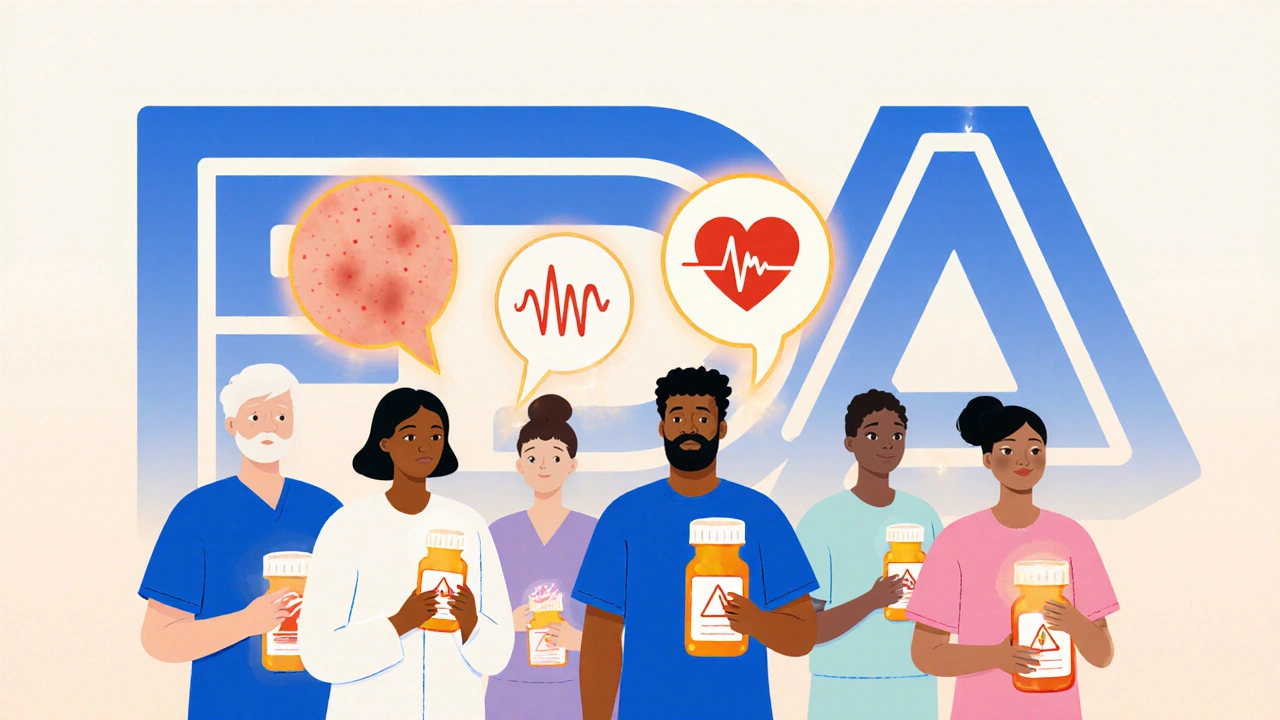Report Adverse Events: What You Need to Know About Drug Side Effects
When you take a medication, you expect it to help—not hurt. But sometimes, even approved drugs cause unexpected reactions. That’s where report adverse events, the process of notifying health authorities about harmful side effects from medicines. It’s not just paperwork—it’s how patients help protect others from dangerous drugs. If you’ve had a bad reaction to a pill, injection, or supplement, telling the right people could stop someone else from going through the same thing.
Adverse drug reactions aren’t rare. They range from mild rashes to life-threatening bleeding, heart issues, or liver damage. Some reactions show up fast, like swelling after an antibiotic. Others creep in over months, like memory loss from long-term antihistamine use. The medication safety, the system designed to track and reduce harm from drugs depends on real people sharing their experiences. Without those reports, dangerous patterns stay hidden. Think of it like a smoke alarm—you don’t wait for the whole house to burn down before you act.
Who reports these events? Anyone. Patients, caregivers, doctors, pharmacists. You don’t need a medical degree. If you noticed something unusual after starting a new drug—dizziness, weird bruising, trouble sleeping, sudden mood swings—that’s worth reporting. Even if you’re not sure it’s related, it counts. The adverse drug reactions, harmful and unintended responses to medications at normal doses tracked by agencies like the FDA or EMA come from real-world use, not just clinical trials. That’s where the real risks show up.
Some reactions are well-known and listed in the leaflet. Others? Not so much. That’s why posts here cover things like warfarin mixing dangerously with antibiotics, or how first-gen antihistamines can blur your thinking for hours. These aren’t theoretical—they’re real cases where someone noticed a problem and spoke up. When you report, you’re joining a quiet network of people who keep the system honest.
You might wonder if it’s worth it. What if you’re wrong? What if nothing changes? But every report adds data. A single case might not trigger a warning. But ten, a hundred, a thousand? That’s how drugs get pulled, labels get updated, or safer alternatives get pushed into the market. That’s how metoclopramide’s risks became widely known, or why certain sleep aids are now avoided in older adults.
Reporting doesn’t mean stopping your medicine. It means staying alert, talking to your doctor, and making sure your voice is part of the bigger picture. The posts below give you real examples—how aspirin slows healing, how insulin doses shift across time zones, how tinnitus can be linked to Lyme disease. These aren’t random stories. They’re clues. And when you learn to spot them, you become part of the solution.

When to Report Rare Side Effects from Generic Medications
- Nov, 14 2025
- Daniel Remedios
- 10 Comments
Learn when and how to report rare side effects from generic medications. Understand what counts as serious, how to submit a report to the FDA, and why your voice matters for drug safety.
